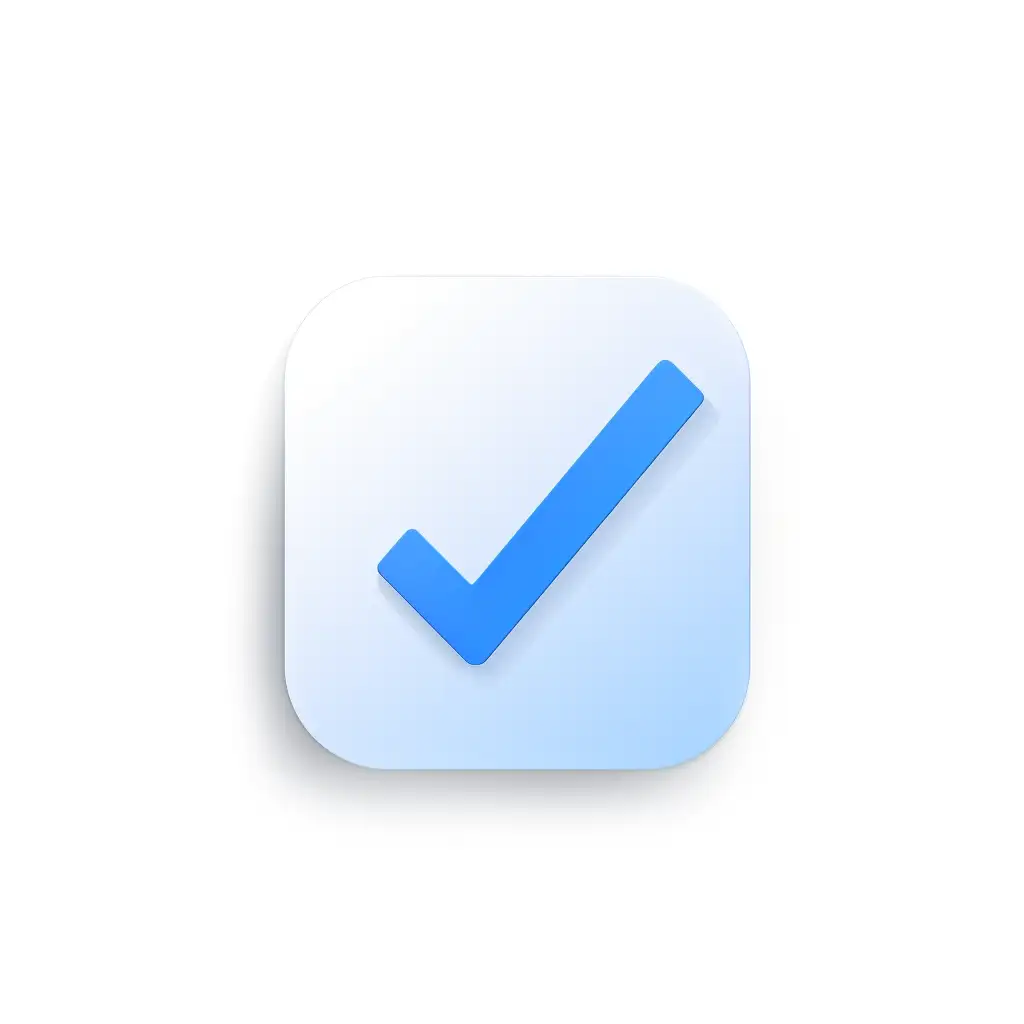Understanding the 941 Employer's Quarterly Federal Tax Return

What Is the 941 Employer's Quarterly Federal Tax Return
The 941 Employer’s Quarterly Federal Tax Return is a critical document for most businesses operating in the United States. It is a form mandated by the Internal Revenue Service (IRS) for reporting the federal withholdings from employees’ paychecks, including income taxes, Social Security tax, and Medicare tax. This form is essential for businesses as it accounts for the taxes withheld from employees’ wages each quarter. Employers use Form 941 to report the total number of employees they have, the total amount of wages paid, and the amount of taxes withheld during the period. Additionally, this form is used to calculate the employer’s portion of Social Security and Medicare tax, thereby completing the full picture of employment-related tax responsibilities.
Importance
Understanding and accurately completing Form 941 is crucial for employers. It ensures compliance with federal tax regulations, which is not only a legal requirement but also a component of responsible business management. Failure to accurately report employment taxes can lead to significant penalties and interest, as well as potential audits by the IRS. Moreover, Form 941 plays a vital role in ensuring that employees’ Social Security and Medicare benefits are correctly recorded. For employers, staying informed about the intricacies of Form 941 is paramount to maintain good standing with the IRS and to guarantee proper handling of employee withholdings. This form, although seemingly straightforward, is integral to the financial and regulatory health of a business, underlining the importance of thorough understanding and meticulous reporting practices in the realm of employment taxes.
What is Form 941?
Form 941, officially titled the Employer’s Quarterly Federal Tax Return, is a crucial document for employers in the United States. It serves as a report that must be filed with the Internal Revenue Service (IRS) every quarter. The primary purpose of this form is to declare the amount of taxes withheld from employees’ paychecks for federal income, Social Security, and Medicare.
Wages and Tips: Employers report the total amount of wages, tips, and other compensation paid to their employees. This includes all forms of cash payments and the equivalent value of non-cash payments like fringe benefits.
Federal Income Tax Withheld: This section details the total amount of federal income tax withheld from the employees’ wages. This withholding is based on each employee’s W-4 form and their taxable income.
Social Security and Medicare Taxes: Form 941 also requires detailed information on the employer and employee contributions to Social Security and Medicare taxes. These are calculated based on a set percentage of the employees’ wages, up to a certain income limit for Social Security.
Adjustments and Credits: The form includes sections for adjustments for tips and group-term life insurance, as well as credits for COBRA premium assistance payments.
Total Taxes and Deposits: Finally, the form calculates the total taxes due and allows the employer to report any deposits made during the quarter. These deposits are typically made electronically and are an advance payment on the taxes reported.
This form is a key element in ensuring that employees’ federal tax obligations are met and that the correct amounts are credited to their Social Security and Medicare accounts. Accurate and timely filing of Form 941 is a significant responsibility for employers, as it directly affects their employees’ future benefits and compliance with federal tax laws.


Who Needs to File Form 941?
Criteria for Filing
Form 941 is a mandatory filing for most employers operating within the United States. The key criteria for determining whether an employer is required to file this form include:
Employment of Workers: Any employer who pays wages to an employee is generally required to file Form 941. This includes wages paid for regular employment, temporary work, or part-time employment.
Withholding Taxes: If the employer withholds federal income tax, Social Security tax, or Medicare tax from employees’ paychecks, they must report these withholdings through Form 941.
Nonprofit Organizations: Nonprofit organizations, including churches and religious organizations, that have employees are also obligated to file Form 941.
Government Agencies: Federal, state, and local government agencies with employees must file Form 941 to report taxes withheld from their employees.
Seasonal Employers: Even seasonal employers, who do not pay wages during some quarters of the year, are required to file Form 941 for the quarters in which they have paid wages.
Exceptions
While most employers are required to file Form 941, there are specific exceptions:
Small Employers with Annual Liability under $1,000: Employers whose annual liability for Social Security, Medicare, and withheld federal income taxes is $1,000 or less may file Form 944, Employer’s Annual Federal Tax Return, instead of Form 941. This option is only available to employers who receive a written notification from the IRS.
Household Employers: Employers of household employees, such as nannies or housekeepers, do not file Form 941. Instead, they report and pay these employment taxes with their personal federal income tax return using Schedule H.
Farm Employers: Employers of farmworkers report and pay these taxes using Form 943, Employer’s Annual Tax Return for Agricultural Employees, instead of Form 941.
Employers of Nonresident Alien Employees: In certain cases, employers paying wages to nonresident alien employees, such as international students, scholars, or foreign workers on temporary assignments, might be subject to different filing requirements.
Employees without Tax Withholdings: Employers who do not withhold federal income tax or Social Security and Medicare taxes (for example, because the employee earns below the taxable threshold) may not need to file Form 941.
It’s important for employers to understand these criteria and exceptions to determine their filing responsibilities accurately. Failure to file Form 941 when required can result in penalties and interest charges from the IRS. Employers uncertain about their filing status should consult a tax professional or reach out to the IRS for guidance.
Filing Deadlines and Requirements
Deadlines
Form 941 must be filed quarterly, and it’s essential for employers to adhere to the specific deadlines to avoid penalties. The filing deadlines for each quarter are as follows:
- First Quarter (January 1 – March 31): Due by April 30.
- Second Quarter (April 1 – June 30): Due by July 31.
- Third Quarter (July 1 – September 30): Due by October 31.
- Fourth Quarter (October 1 – December 31): Due by January 31 of the following year.
If the deadline falls on a weekend or a public holiday, the due date is extended to the next business day. It’s important to note that these deadlines are for the filing of the form. Tax payments that are due should be made through the Electronic Federal Tax Payment System (EFTPS) on a monthly or semi-weekly basis, depending on the employer’s tax liability.
Requirements
To accurately file Form 941, employers need to gather specific information and documentation. This includes:
Employer Identification Number (EIN): Every form must include the employer’s EIN, which is used by the IRS to identify the taxpayer.
Employer’s Name and Address: The legal name of the business and the address associated with the EIN.
Total Number of Employees: The number of individuals who received wages, tips, or other compensation during the quarter.
Total Compensation Paid: The total amount of wages, tips, and other compensation paid to employees during the quarter.
Federal Income Tax Withheld: The total amount of federal income tax withheld from employees’ wages.
Social Security and Medicare Taxes: The employer must calculate and report both the employee and employer shares of Social Security and Medicare taxes based on the current tax rates and wage base limits.
Adjustments for Tips and Sick Pay: Any adjustments related to tips and sick pay need to be reported.
Deposits Made: The total amount of deposits made for the quarter, including federal income tax withheld and both the employer and employee shares of Social Security and Medicare taxes.
COBRA Premium Assistance Payments: If applicable, report any COBRA premium assistance payments made.
Employers should ensure that their payroll records are accurate and up-to-date before filing. It’s also advisable to cross-check the amounts reported on Form 941 with payroll records to ensure consistency. If there are discrepancies, they should be resolved before filing to avoid potential issues with the IRS. For those unsure about any aspect of the form or needing assistance, consulting with a tax professional or using payroll software that can handle these calculations can be very beneficial. Accurate and timely filing of Form 941 is a crucial aspect of compliance with federal tax laws for employers.

How to File Form 941
Step-by-Step Guide
Filing Form 941 correctly is crucial for compliance. Here’s a detailed guide to help you through the process:
Gather Necessary Information: Before starting, ensure you have all the required information, including total number of employees, total wages paid, federal income tax withheld, and the employer’s and employee’s share of Social Security and Medicare taxes.
Obtain Form 941: You can download Form 941 from the IRS website. Ensure you’re using the form for the correct year as tax rates and laws may change.
Fill Out Employer Information: Enter your EIN, business name, and address in the designated boxes at the top of the form.
Report Wages and Taxes:
- Line 2: Enter the total number of employees paid during the quarter.
- Line 5a-5d: Report wages, tips, and other compensation, and calculate the tax amounts for Social Security and Medicare.
- Line 3: Enter the total federal income tax withheld from employees’ wages.
Calculate Adjustments: If applicable, make adjustments for sick pay, tips, and group-term life insurance on lines 7-9.
Total Deposits and Tax Liability: On lines 10-12, report your total tax liability for the quarter and the total deposits made.
Sign and Date: After reviewing the form for accuracy, sign and date it. An authorized person, such as the business owner or principal officer, should do this.
Attach Payment: If you owe taxes, attach a check or money order payable to the “United States Treasury.”
Electronic Filing
Options for Electronic Filing:
- e-File Through a Tax Professional: Many tax professionals offer e-filing services. They can help you prepare and file your return electronically.
- IRS e-file: Use the IRS e-file system if you are comfortable preparing your own taxes. You’ll need to create an account on the IRS website.
Benefits of Electronic Filing:
- Accuracy: e-Filing software can reduce errors by checking for common mistakes and ensuring that all the necessary information is included.
- Faster Processing: Electronic submissions are processed quicker than paper returns, leading to faster confirmation of receipt by the IRS.
- Convenience: You can file electronically 24/7 from your office or home.
- Immediate Receipt Confirmation: You receive a confirmation or rejection notice within 24 hours of filing, providing peace of mind that your submission has been received.
- Direct Deposit for Refunds: If you’re due a refund, you can receive it faster through direct deposit.
- Payment Options: Various electronic payment options are available, such as Electronic Funds Withdrawal (direct debit), EFTPS, or a credit/debit card.
Remember, the accuracy and timeliness of filing Form 941 are paramount. Employers who are unsure about any aspect of the process should consult a tax professional. Electronic filing, with its various benefits, can simplify the process and ensure compliance with IRS regulations.
Common Mistakes and Compliance Tips
Common Errors
Filling out IRS Form 941 can be complex, and errors can lead to delays, penalties, or audits. Common mistakes include:
Incorrect Employer Information: Misreporting the Employer Identification Number (EIN), name, or address. This can lead to misfiled forms and confusion with the IRS.
Miscalculating Taxes: Errors in computing the total taxes due, including Social Security, Medicare, and federal income tax withholdings. This often results from incorrect payroll calculations.
Not Reporting All Wages: Failing to include all taxable wages, tips, and other compensations paid to employees.
Incorrectly Calculating Adjustments: Mistakes in adjusting for tips, sick pay, and other non-cash benefits.
Filing Late: Missing the quarterly deadlines for filing Form 941 can result in penalties.
Failure to Make Payments: Not making the required tax deposits or incorrectly reporting them on Form 941.
Errors in Reporting COBRA Premium Assistance Payments: These need to be reported accurately for compliance and proper credit.
Overlooking Electronic Filing Requirements: Larger employers are often required to file electronically and may face penalties for paper filing.
Best Practices
To avoid these common mistakes and ensure compliance, consider the following best practices:
Double-Check Employer Information: Always verify your EIN, business name, and address before submitting the form.
Use Payroll Software: Utilize reliable payroll software to accurately calculate taxes and maintain records. This reduces the likelihood of computational errors.
Maintain Accurate Employee Records: Keep detailed records of all employees’ wages, tips, and other compensations.
Understand Current Tax Rates: Stay informed about the current Social Security, Medicare, and federal income tax rates. These can change annually.
Regularly Review IRS Guidelines: The IRS periodically updates its guidelines and forms. Regular review can help you stay compliant with the latest requirements.
Set Reminders for Deadlines: Keep track of quarterly filing deadlines and set reminders to ensure timely filing and payments.
Consult with a Professional: If unsure about any aspect of Form 941, consult with a tax professional. They can provide expertise and ensure accurate filing.
File Electronically: Consider e-filing for a more efficient, secure, and error-proof submission. It also provides immediate confirmation of receipt.
Keep Records of Filed Forms and Payments: Maintain copies of filed Form 941s and records of tax payments. This documentation is crucial in case of IRS inquiries or audits.
Regularly Train Financial Staff: Ensure that anyone responsible for payroll and taxes is trained and up-to-date on the latest tax laws and filing procedures.

Disclaimer: The content provided on this webpage is for informational purposes only and is not intended to be a substitute for professional advice. While we strive to ensure the accuracy and timeliness of the information presented here, the details may change over time or vary in different jurisdictions. Therefore, we do not guarantee the completeness, reliability, or absolute accuracy of this information. The information on this page should not be used as a basis for making legal, financial, or any other key decisions. We strongly advise consulting with a qualified professional or expert in the relevant field for specific advice, guidance, or services. By using this webpage, you acknowledge that the information is offered “as is” and that we are not liable for any errors, omissions, or inaccuracies in the content, nor for any actions taken based on the information provided. We shall not be held liable for any direct, indirect, incidental, consequential, or punitive damages arising out of your access to, use of, or reliance on any content on this page.
Trusted By
Trusted by 3.2M+ Employees: 21 Years of Service Across Startups to Fortune 500 Enterprises
Join our ever-growing community of satisfied customers today and experience the unparalleled benefits of TimeTrex.










Strength In Numbers
Join The Companies Already Benefiting From TimeTrex
Time To Clock-In
Start your 30-day free trial!
Experience the Ultimate Workforce Solution and Revolutionize Your Business Today
- Eliminate Errors
- Simple & Easy To Use
- Real-time Reporting

Saving businesses time and money through better workforce management since 2003.
Copyright © 2025 TimeTrex. All Rights Reserved.

